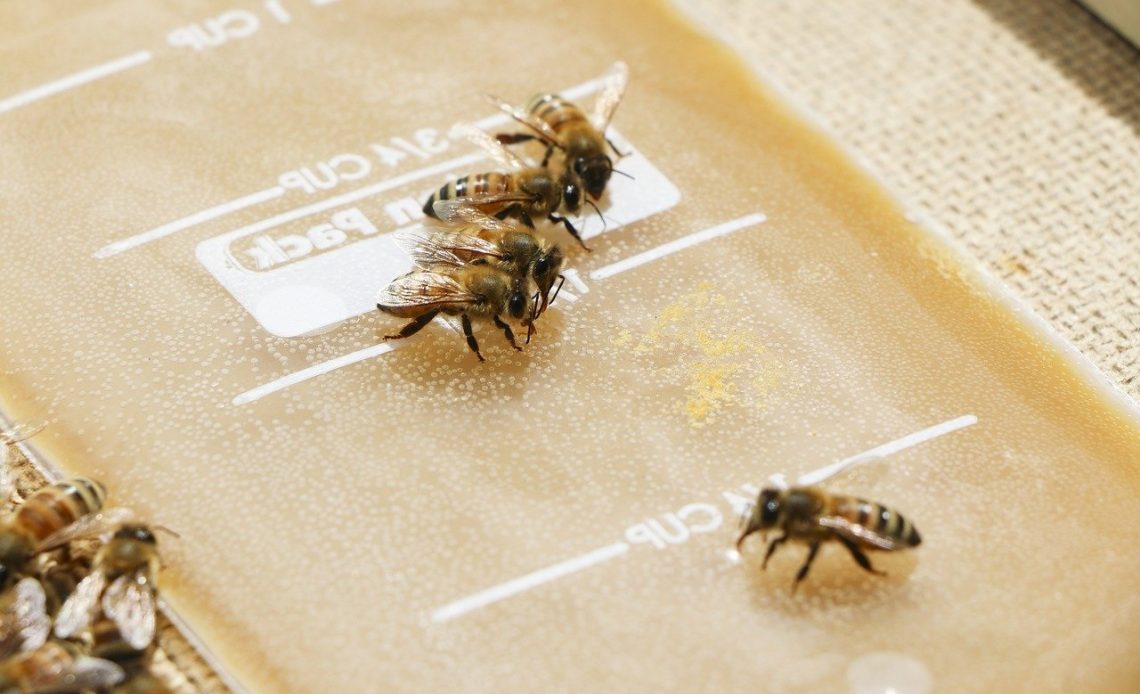

We’re here to help! Wild Yards is a completely free website that is 100% dedicated to helping you create a wildlife-friendly, sustainable yard. Read more
WildYards is reader-supported. When you buy a product through a link on our site, we may earn a comission. Every product is independently selected by our (obsessive) editors and our reviews are unbiased and objective. Read more about our mission or our privacy policy.
If you know anything about bees, it’s that they love sugar – specifically the sweet stuff in the form of pollen and nectar! Therefore, it’s only natural you might wonder about different types of sugar that you can feed to bees (if need be). Can bees have brown sugar, for example?
No – you should never feed bees brown sugar. It can actually be toxic for them, which is why you should only ever stick to white, granulated sugar if you can.
Below, we’ll take a look at why brown sugar is considered so toxic to bees – and what you can feed them instead, if you need to.
Why is brown sugar toxic to bees?
It’s to do with the molasses content. Molasses is used in some sugars, such as brown blends, to help add to the color and the taste. Therefore, it’s hardly the purest type on the market, and bees certainly wouldn’t go looking for it in the wild.
Even Demerara and light brown sugars can contain molasses, and some other types may even contain artificial sweeteners that can also cause trouble for their digestive systems.
While you and I are able to enjoy the odd bit of brown sugar or artificial sweeteners in moderation, bees simply aren’t able to process them. Bees, ultimately, process natural sucrose – that, ideally, which they will find in the nectar from plants and flowers. As such, again, they simply won’t find these sweeteners, or molasses, in the flowers they seek out in the wild.
Should I feed bees white sugar?
Yes – providing it is completely pure, and 100% natural. The best option, therefore, is granulated – sometimes referred to as table sugar, too. Table sugar is often bagged and sold as-is, meaning it is as close as you can get to flower sucrose without actively digging into the plants themselves!
Essentially, anything with unnatural ingredients or additives must be left alone. We are complex beings in ways completely different to bees so it is very easy to overwhelm them. We wouldn’t feed our cats and dogs on anything unnatural – the same rule of thumb applies to our garden beasts.
When might I feed a bee sugar?
Bees may need a little sugar pick-me-up if they are grounded, or are otherwise unable to get to flowers.
You may have been reading this far and have wondered ‘why should I be feeding bees at all?’ – in some perfect world, this would be the case. For the most part, the bees we know and love are perfectly self-sufficient and will happily feed off a wide variety of plants and blooms in your yard.
However, in some cases, bees can find themselves stranded, or grounded out of stress, fatigue or ill health. While there’s very little we can ever do to revive bees that are suffering from species-related conditions, an exhausted bee can be revived with a little sugar water.
We have more information available to you in our article on whether bees can grow their wings back – but crucially, it’s healthy to mix a little water and a little white, granulated sugar (50% each) to try and revive a bee.
Otherwise, there shouldn’t be much need for you to feed bees. Providing your garden is full of blooms that bees are attracted to, they should be getting more than enough sugar to help build honey back at the hive.
What else might be toxic to bees?
Anything considered artificial isn’t going to be healthy for bees – and believe it or not, even some plants that give off nectar can prove to be toxic for some bee species, too. For example, did you know that the rhododendron – poisonous for humans – is poisonous for bees, too?
Unfortunately, bees don’t have access to references! Therefore, many will unfortunately find themselves swarming around brightly-colored plants, not aware that some can harm them. The Yellow Jessamine plant, for example, can cause ‘drunkenness’ in bees – and may even lead to fatalities.
Ultimately, it’s a great idea to stick to a list of plants and flowers that attract bees – and that are safe for them to enjoy!
Have you any experience in beekeeping? If you have any ideas you’d like to share with the Wild Yards community, please feel free to comment below!
